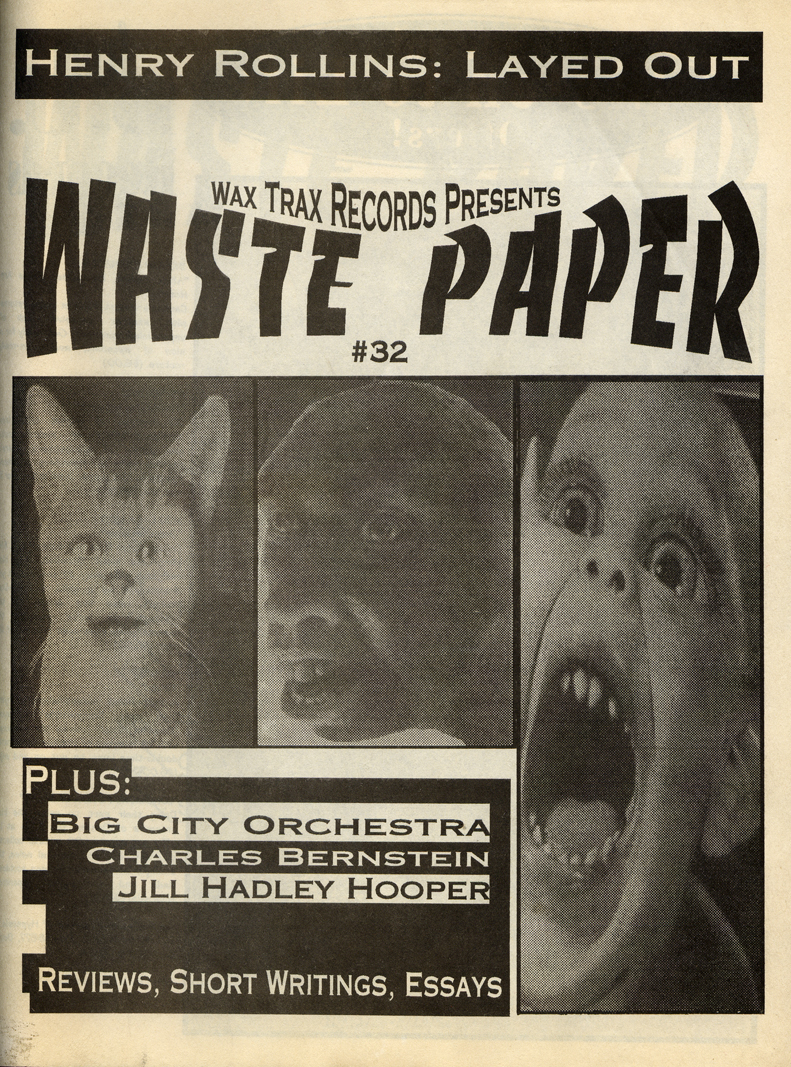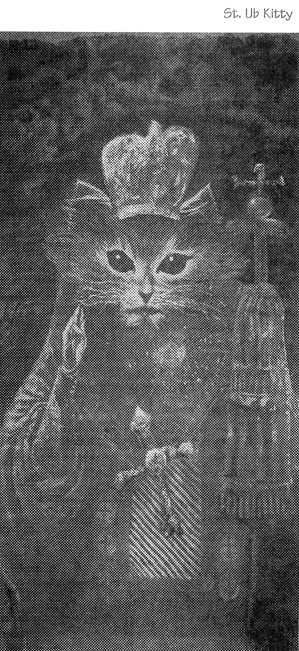
Have you ever messed around with a sampler? Chances are good you’ve been around one at least once. Even on the Cosby show, the Cosby kids were delighted when Stevie Wonder played back a sampled replication of their voices. Fortunately for Stevie, the children had never fiddled about with one.
But Big City Orchestra has. Through 13 years of networking, hundreds of compilation appearances and over 70 cassette releases, they’ve not only witnessed firsthand the advent of these samplers and dumbasses like Luther Campbell facing their potential repercussions, but they’ve honed their clever skills enough to become stalwarts of the experimental music community. And, they’ve just released their first CD, “The Four Cassettes Of The Apocalypse,” which is an amazing whirlwind of sampled disasters, 7 or so musicians fading in and out of the foreground with non-musical intrusions, and they only know what else. It’s a long, intense and remarkable outpouring.
But of course, BCO knows that even a sampler cannot do it all. And through the years, stylistic intuitions, personnel and instruments change. As well as the labels who initially dealt only with tapes of such things. Robo from BCO elaborates.
“For one thing, the cassette network has slowed down considerably since early on, which is somewhat of a crawl now. There were a lot more labels, up until the last year or two, asking us specifically for product. Stylistically, it just depends on the instruments we’re building or using at the time. Actually, a lot of our mindset and philosophy has remained about the same. We lever lean in any one direction for too long of a time. We also like to consider the ultimate destination of a work, so that kind of forces us to take a lot of different directions.”
“Equipment-wise, things have changed an awful lot since the earlier days, rather than just piling up more and more toys and tools and a lot of electronic nonsense, we’ve learned to do more with less in a way.”
Since the ultimate destination for a good deal of people these days would be an all-night music fest, or a “rave,” the inevitable thought is how can a band like BCO, who has built their entire structure on aural weirdness for so long, possibly be compatible? How could they break beyond the crowd of listeners they’ve already established? More from Robo.
“I have different feelings on it than others in that the whole thing somewhat disturbs me. I see it as a way to co-opt experimental music and make it marketable and somewhat one-dimensional in its meaning. It is just disco, I mean I look at it as a new mainstream form of entertainment, I don’t see it as really being connected to the underground. But well, loopy, monotonous, droney, repetitious things are just an awful lot of fun. You can put so much thought into them, that it’s true, people may not necessarily hear or think about it as they’re listening to it, which is good. What happens at these kinds of events, generally, is that they’re designed to be very much of an overkill, multi-media deal. It’s like if you took the concept of a “happening” from the 70’s, and took about 10 of those and put them under one roof, it’s just another mass-media overkill type design. And what has developed in the last year or so, what has become popular is to provide an antidote room to the overkill atmosphere, where you can go and it’s sort of dim and slow, something where you’d have to wait a little longer and listen a little harder to find something going on to latch onto. It’s not just thrust down your throat so much. And we started to get involved in those types of environments because it’s a little more akin to what we do.” Das, overseer of BCO since its inception, also added, “It’s sort of closer to doing soundtracks, environmental-type installations, doing plays and all the rest.”
Big City Orchestra performed an “anti-rave” or 8 hours of hypnotic sounds & effects, in their native Bay-area area, just 2 days prior to this interview. But they were anything but groggy as Robo continued: “The performance the other night was scripted out in such a way that you had an hour and a half of water only sounds, a couple of hours of outdoor sounds, maybe a thunderstorm might happen for 45 minutes. It all sounds rather mundane to just describe, but there really are a great deal of variations to do, and up until now, what you would call a “chill-out” room, or an ambient room, it had been a DJ thing, just playing records, and people are discovering it’s a lot more interesting to have live people actually standing there doing something physically. I mean, the people who go to these things come expecting a certain type of music and a certain quantity of beats per minute and we aren’t really that interested in delivering that.”
Precisely what I’d love to see introduced to the next herd of attendees at such an event. So now that the guys’ve laid their own treatment of the genre directly into its own arena, now what?
”An upcoming project we’re doing is “Beatlerape,” a sequel to a project we did many years ago titled “Beatles Hell,” a very popular Big City Orchestra thing with a terrifying cover, that was condensed down from numerous radio shows we had done in the 80’s. We would go on the air and play thousands of Beatles covers by different people, with Beatles vocals and interviews that we had cut up and rearranged to have them generally blathering on…perhaps they always meant to say it but never really did, but they did when we were through with them…and last year I came across some Beatles bootlegs and stuff and it hit me that we should do a sequel to that project, because technology has advanced so that we can now do a lot of the things we wanted to that we couldn’t with the original project. It’s probably the most intense, noisy, bizarre treatment I’ve ever heard anyone do of The Beatles anywhere. It’s just utterly taking them beyond and below the point that I think they’ve ever gone. Throwing all modesty to the wind, it’s just an extreme, extreme thing.
Now that’s something that should be played back for Stevie Wonder. And while he’s at it, he oughtta check out “The Four Cassettes Of The Apocalypse,” BCO’s latest CD. It’s one of those albums that’s so loaded with premise and requisite information, it’s tough to even begin. The stuff is something though, really cool soundscapes that meet up with fluctuating saws, turntables, mechanical percussion and more, and Das concludes: “It’s all about Mr. Uninitiated and the silly things he tries to do to cope in the modern world. I actually don’t want to give away too much, because there is a full story in it, the liner notes are basically a story. It’s just one of these bits of mythology that have been percolating in the back of our work for years, and we’ve done shows directly related to characters in this little story. This release is the first that came out and really clarified that in text and pictures. And the next CD continues that, it’s called “Greatest Hits And Testtones,” and it continues the story of Mr. Uninitiated and St. Ub Kitty.”
And he’s a cute little fella, alright.
